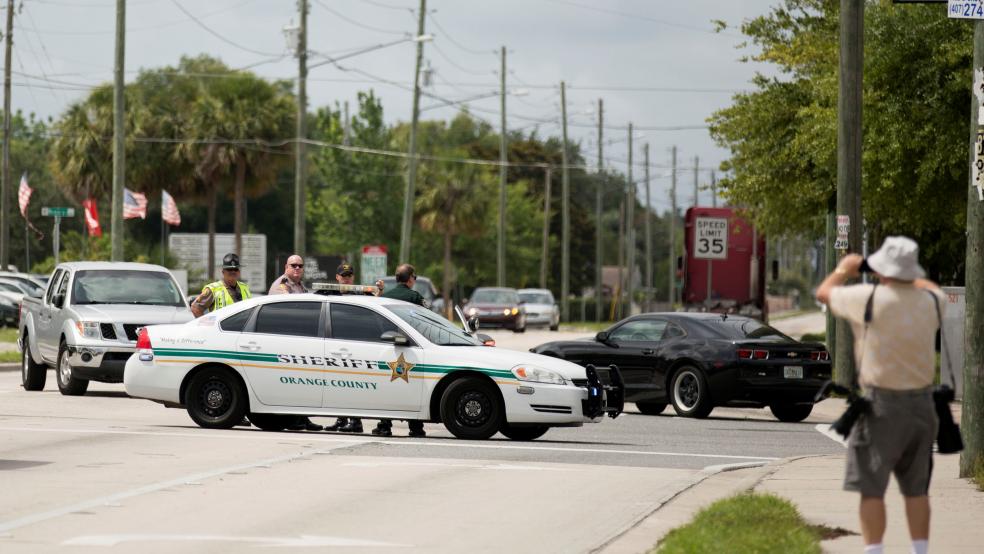WASHINGTON (Reuters) - The U.S. Senate will make its strongest push in years to tighten gun controls on Monday, voting on four proposals a week after the Orlando shooting massacre prompted new calls to keep firearms away from people on terrorism watch lists.
But while the deadliest mass shooting in modern U.S. history has spurred quick action in Congress, none of the bills is expected to achieve the 60 votes needed for passage in the 100-seat chamber, as Republicans and Democrats have not been able to reach consensus on the extent of any new restrictions.The proposals aimed at strengthening background checks for gun purchases will come as amendments to a Justice Department spending bill.While similar bills failed after mass shootings at an elementary school in Newtown, Connecticut in 2012 and a conference center in San Bernardino, California in 2015, some senators insist the politics over gun control are shifting, with national security looming larger in the debate.The Orlando gunman, Omar Mateen, pledged allegiance to the militant group Islamic State, or ISIS, as he killed 49 people in a gay nightclub, authorities said. "I admit that the background checks bill is going to be tough to get 60 votes on, but we still have hope that we can get Republicans to support the bill, stopping terrorists from getting weapons," Senator Chris Murphy, a Connecticut Democrat, told ABC's "This Week" on Sunday.In the Republican-controlled Senate, Murphy led fellow Democrats in 15 straight hours of floor debate last week to demand action on gun control, a move he said "helped galvanize an entire country around this issue." A Reuters/Ipsos poll conducted last week found that 71 percent of Americans favor at least moderate regulations and restrictions on gun sales, including eight of 10 Democrats and six of 10 Republicans. That compared with 60 percent in late 2013 and late 2014.Congress has not passed new gun restrictions since a 2007 expansion of the government's automatic background check database to include individuals with a history of mental illness and felons. The United States has more than 310 million weapons, about one for every citizen. A Democratic congressman on Monday called on House of Representatives Speaker Paul Ryan, a Republican, to schedule a vote on a 'no fly, no buy' bill this week before lawmakers go on vacation on Friday."Paul Ryan has an obligation to at least put that up for a vote. And I believe that if he did, it would pass," U.S. Representative Steve Israel of New York told CNN.'NATIONAL SECURITY ISSUE'Following the Orlando shooting, Democrats have been pushing a new tactic to try to shift the gun control debate to a national security issue, in part to make new restrictions more appealing to Republicans.Senator Dianne Feinstein, who is pushing a major Democratic proposal to give the federal government broad latitude to deny gun purchases to those under suspicion of terrorism links, said her plan "would have picked up Omar Mateen," who had once been on a watch list.Some Republicans said the plan goes too far and may trample on the constitutional rights of those wrongly suspected."Republicans and Democrats should be looking at the rise of ISIS and its ability to communicate with and influence disturbed individuals domestically, which is a national security issue that has not gotten the attention it deserves," said Republican political strategist Rory Cooper.Likewise, Democrats said that Republican Senator John Cornyn's proposal to require court approval within three days for the government to ban an individual's attempt to buy a gun over terrorism suspicions doesn't go far enough.A similar bill failed last December, but Cornyn of Texas has said he expects to pick up more Democratic votes because this version does not include provisions to punish so-called "sanctuary cities" accused of not enforcing U.S. immigration laws.National Rifle Association Executive Vice President Wayne LaPierre, who has opposed nearly every gun control proposal in recent years, has said he supports Cornyn's plan because it "codifies" current practices on terrorism suspicions.Two other proposals will get votes on Monday, including Murphy's plan to expand background checks to online sales and those at gun shows and Republican Senator Charles Grassley's plan to boost funding for the National Instant Criminal Background Check System and add mental health considerations to the checks. Some Republican pinned hopes on a compromise proposal by Senator Susan Collins, a Maine Republican. Her plan would restrict gun purchases to a narrower group of suspects, including those on a "no-fly" list or a "selectee" list of people who require additional screening at airports..Senator Jeff Sessions, a conservative Republican from Alabama, said he is willing to consider Collins' plan."I am open to the details," Sessions told CNN. "I agree that, somehow, some way, we should be able to make this work." (Additional reporting by Doina Chiacu; Editing by Mary Milliken and Jeffrey Benkoe)U.S. Senate to vote on gun curbs in swift response to Orlando shooting

DANIEL LECLAIR



